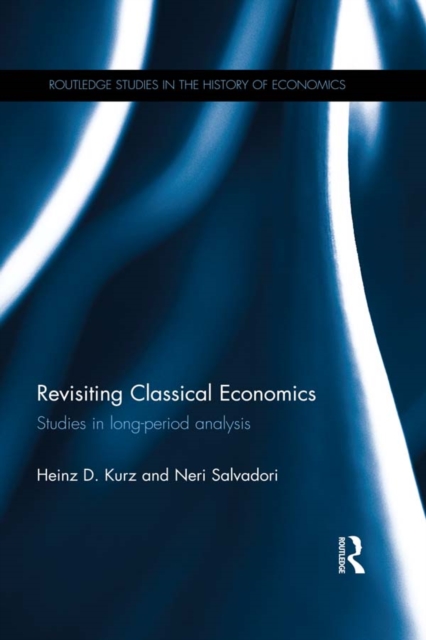
Revisiting Classical Economics : Studies in Long-Period Analysis PDF
by Heinz Kurz, Neri Salvadori
Part of the Routledge Studies in the History of Economics series
Description
The financial crisis and the economic crisis that followed triggered a crisis in the subject of economics, as it is typically being taught today especially in macroeconomics and related fields. A renewed interest in earlier authors, especially the classical economists from Adam Smith to David Ricardo and John Maynard Keynes, developed. This book may also be seen as a response to this interest. What can we learn from the authors mentioned, what we could not learn from the mainstream?
This volume contains a selection of essays which deepens and widens the understanding of the classical approach to important problems, such as value and distribution, growth and technical progress, and exhaustible natural resources. It is the fourth collection in a row and reflects an on-going discussion of the fecundity of the classical approach.
A main topic of the essays is a comparison between the classical approaches with modern theory and thus an identification of what can be learned by elaborating on the ideas of Smith and Ricardo and Marx above and beyond and variously in contradiction to certain mainstream view. Since the work of Piero Sraffa spurred the revival of classical economic thought, his contributions are dealt with in some detail. The attention then focuses on economic growth and the treatment of exhaustible resources within a classical framework of the analysis.
Information
-
Download - Immediately Available
- Format:PDF
- Pages:346 pages
- Publisher:Taylor & Francis
- Publication Date:07/08/2014
- Category:
- ISBN:9781317907978
Other Formats
- Paperback / softback from £36.59
- Hardback from £150.00
- EPUB from £35.99
Information
-
Download - Immediately Available
- Format:PDF
- Pages:346 pages
- Publisher:Taylor & Francis
- Publication Date:07/08/2014
- Category:
- ISBN:9781317907978










